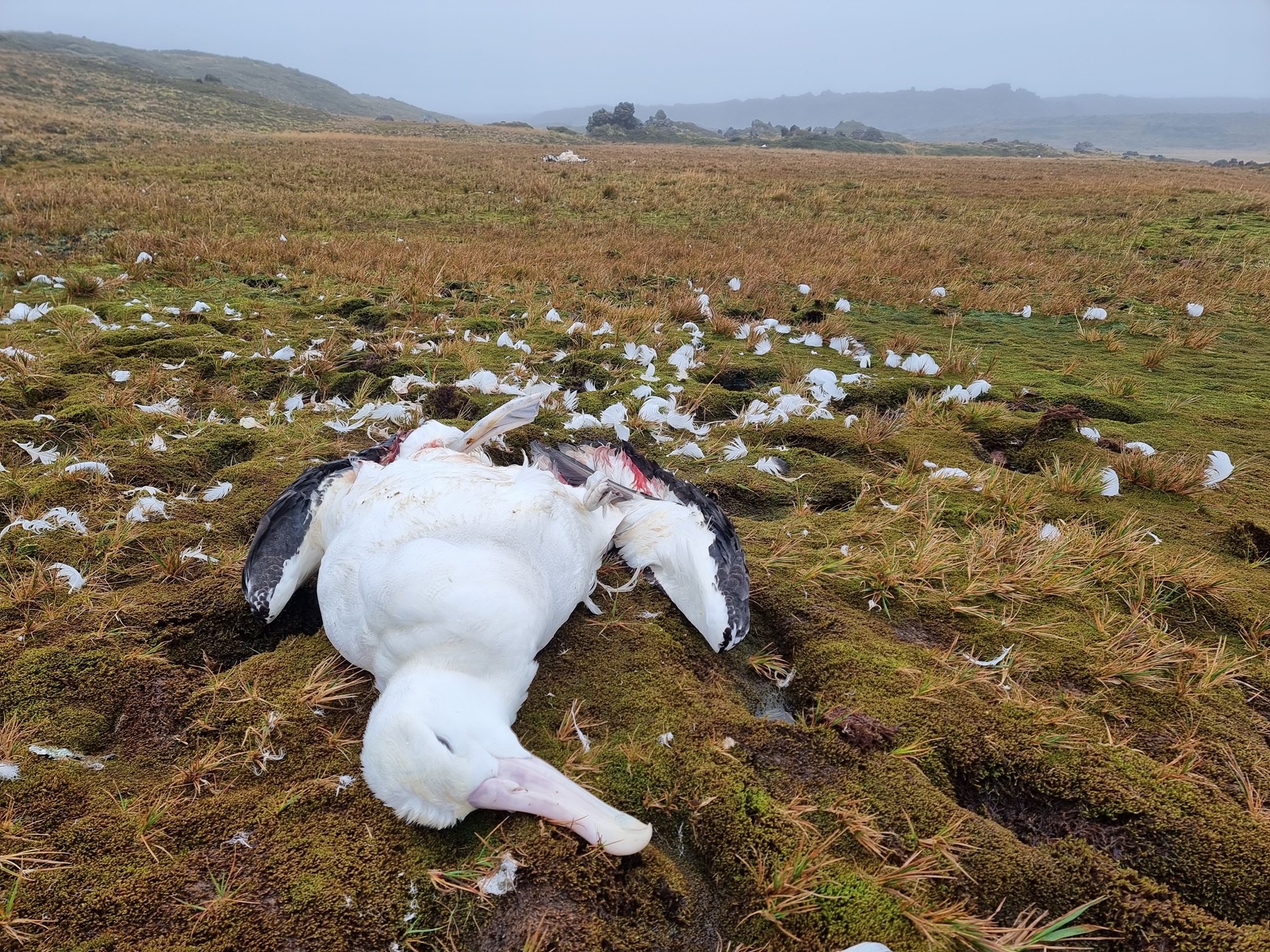
Mouse attack! This breeding Wandering Albatross found dead on Marion Island in April 2023 showed clear signs of wounds caused by House Mice, photograph by Michelle Risi
Maëlle Connan (Marine Apex Predator Research Unit, Nelson Mandela University, Gqeberha, South Africa) and colleagues have published early view and open access in the journal Biological Invasions on observations of introduced House Mice Mus musculus attacking and killing adult Critically Endangered Tristan Albatrosses Diomedea dabbenena on Gough Island and adult Vulnerable Wandering Albatrosses D. exulans on Marion Island. The death of breeding adults confirms the need to eradicate the mice. Unfortunately, the attempt by the Gough Island Restoration Programme to eradicate Gough’s mice in 2021 failed. Eradication of the mice on Marion Island is set to take place in winter 2026, according to the Mouse-Free Marion Project.
The publication also reports observations of two wounded Wandering Albatrosses (thought to also be due to mice) photographed at the same time; their fate being unknown. See the photographs below.
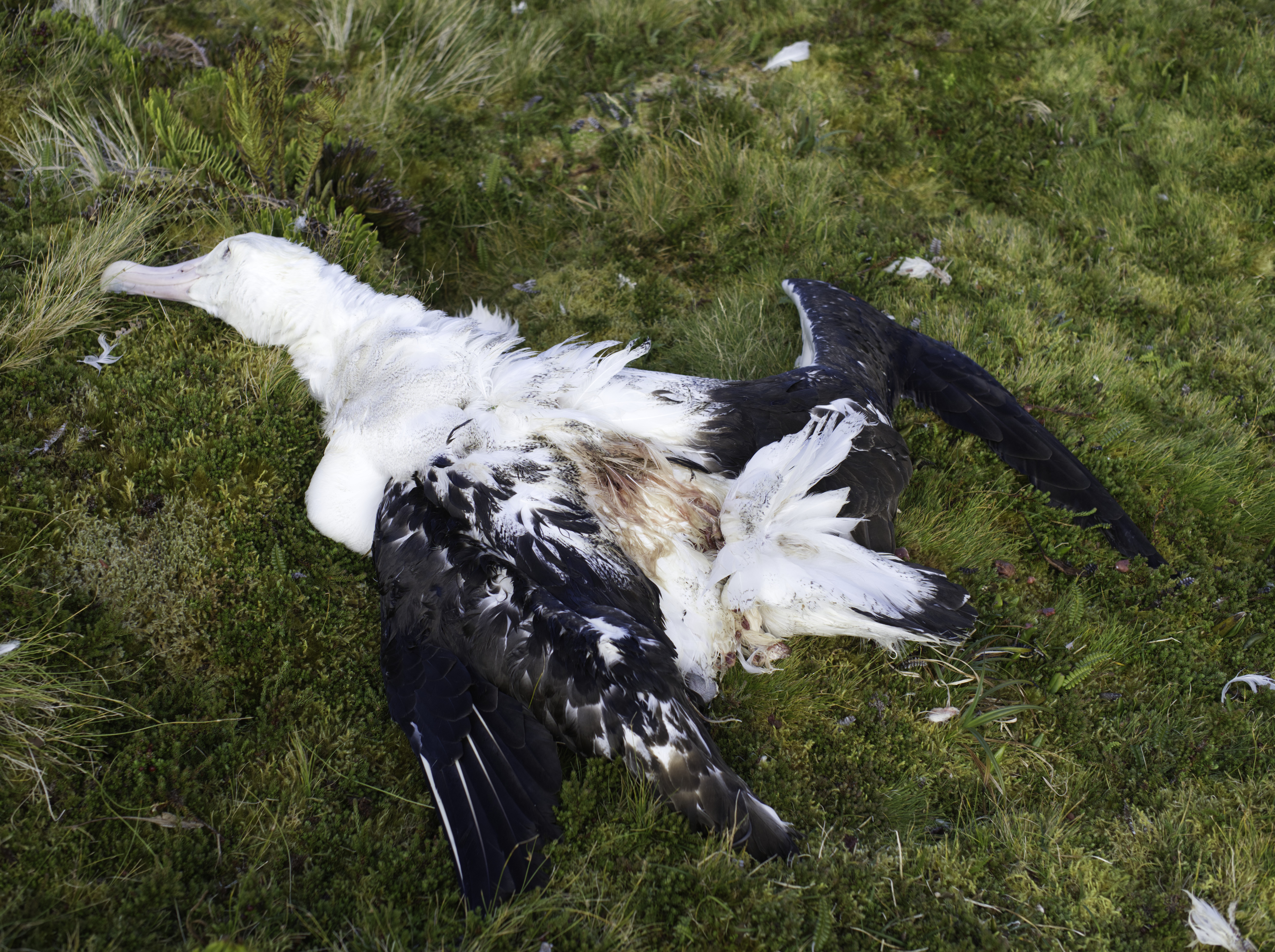
The corpse of a female adult Tristan Albatross found after being attacked by mice on Gough Island in April 2021, photograph by Roelf Daling
The paper’s abstract follows:
“Invasive rodents threaten native species in numerous ecosystems, especially oceanic islands. The House Mouse Mus musculus is the only introduced mammal species on sub-Antarctic Gough and Marion Islands. Ample evidence exists of mice preying upon seabird chicks on these two islands, but there have been only a few reports of attacks on adult seabirds, none of which has been fatal. We report the first deaths of adult great albatrosses due to mouse attacks. On Gough Island, three Tristan Albatrosses Diomedea dabbenena (Critically Endangered) brooding small chicks were observed with wounds typical of mouse attacks in March-April 2021; two likely abandoned their chick, causing breeding failure, and the third was found dead eight days after discovery with large blowfly larvae in the wound. On Marion Island, two wounded and eight dead adult Wandering Albatrosses D. exulans (Vulnerable) were found in April 2023. Inspection of the wounded individuals, as well as the injuries on the fresh carcasses strongly suggest that mouse predation was the cause of death. Gough Island is home to virtually all Tristan Albatrosses, and Marion Island is the single most important breeding site for Wandering Albatrosses, home to about a quarter of all breeding birds. The death of breeding adults of these long-lived species emphasizes the urgent need to eradicate introduced mice from these islands.”
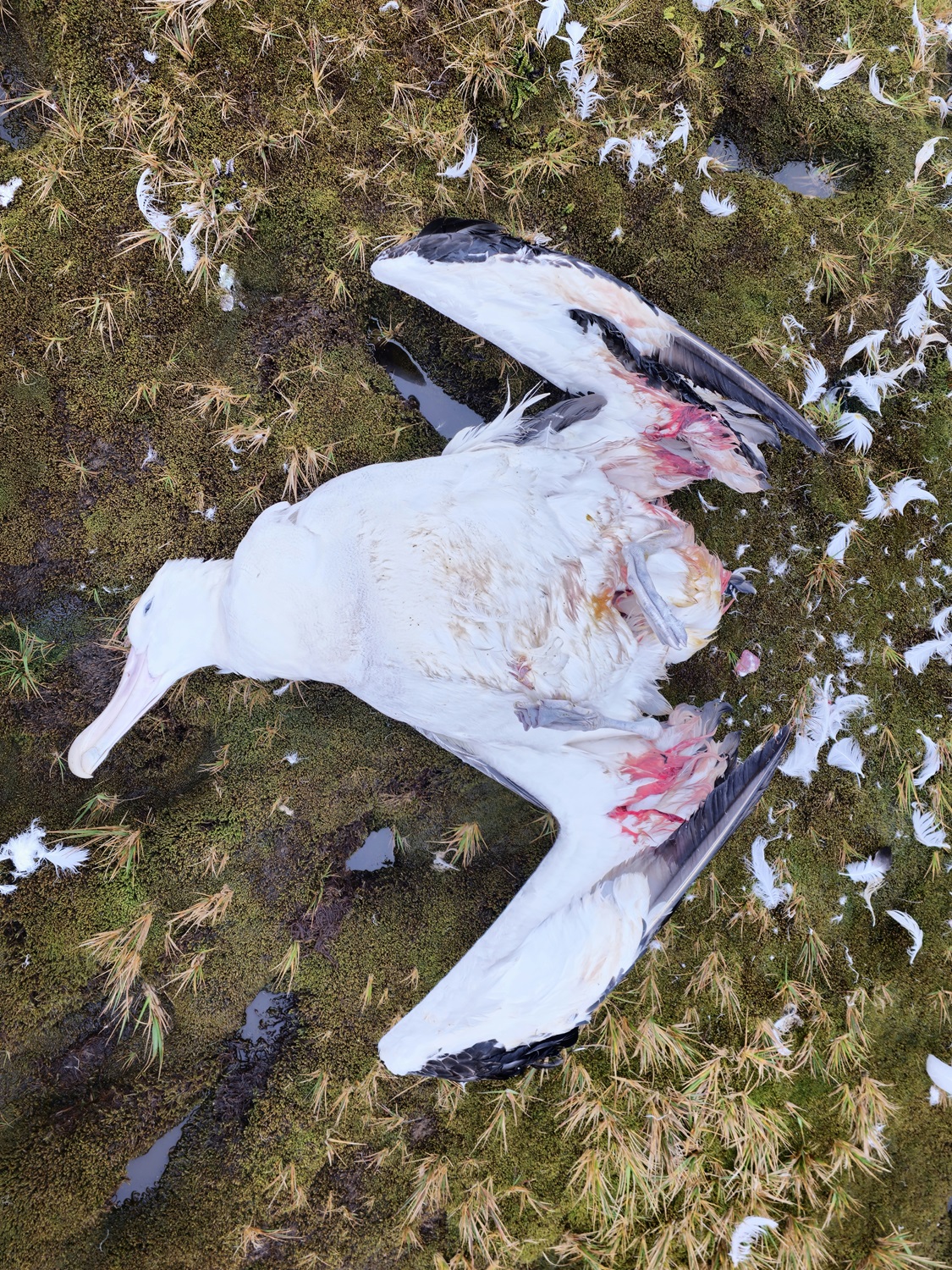
Another view of the dead Wandering Albatross with typical wounds caused by mice on its wings, photograph by Chris Jones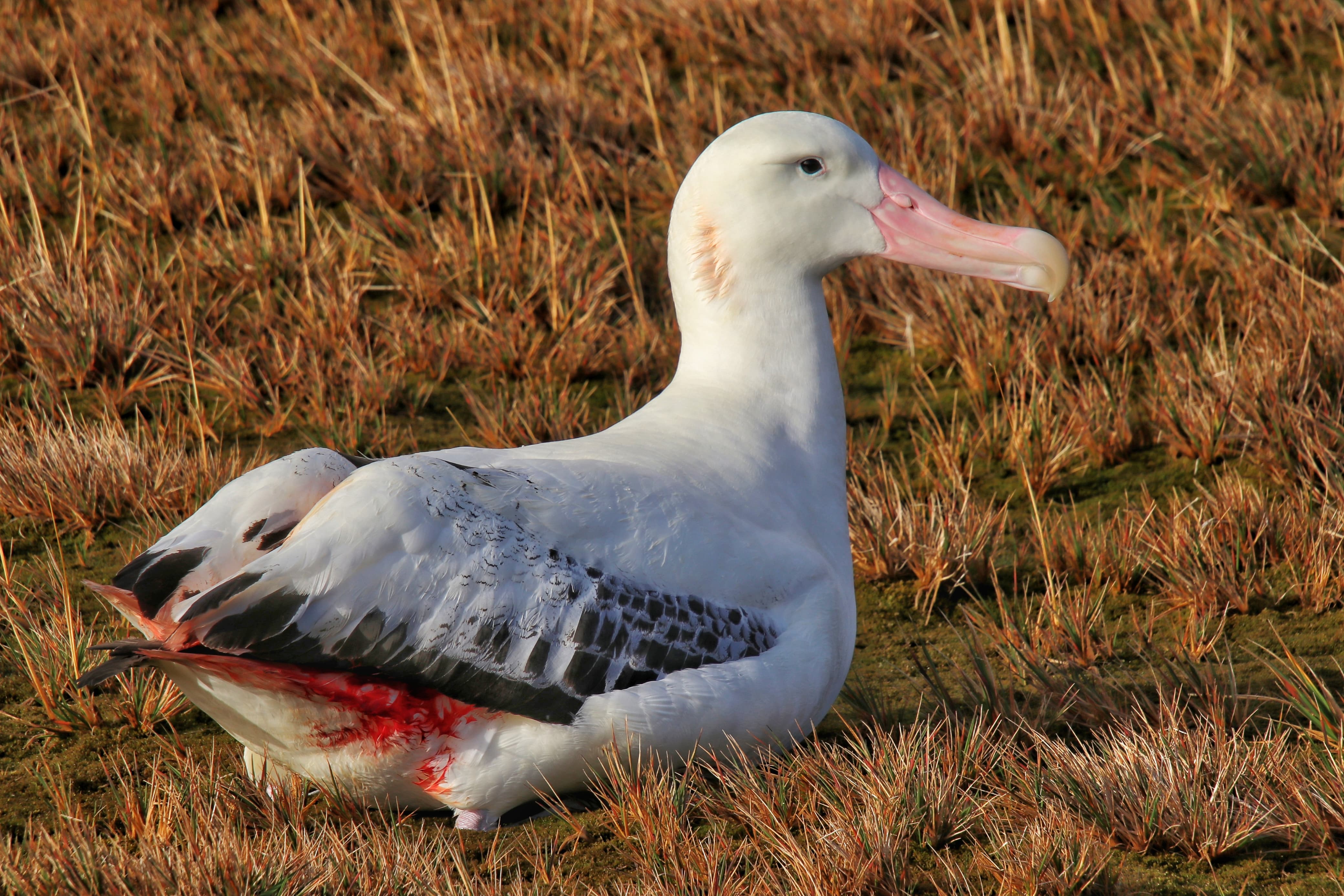
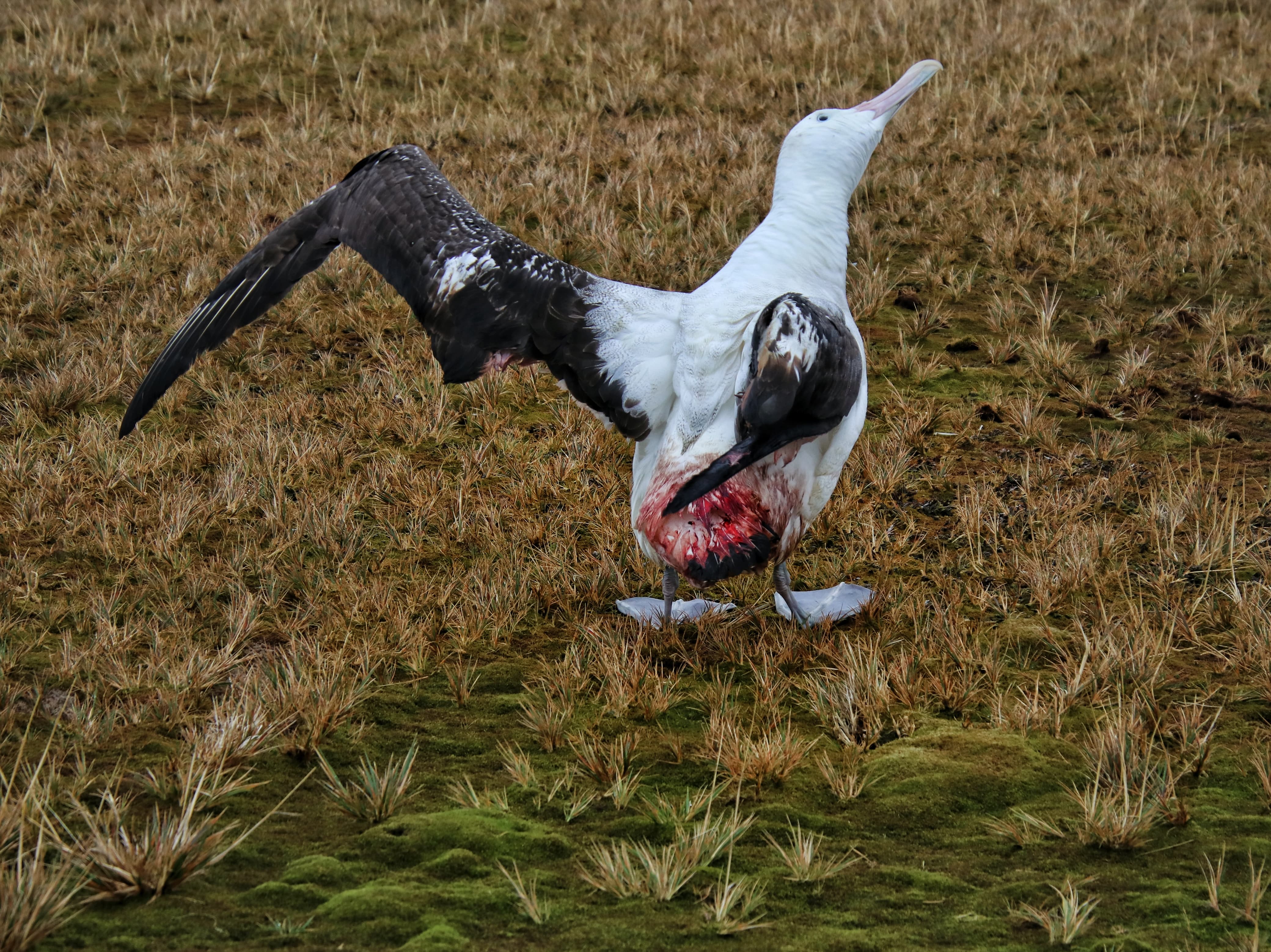
Wounded Wandering Albatrosses, Marion Island, April 2023. Top male, bottom female, photographs by Chris Jones
With thanks to Maëlle Connan, Roelf Daling, Chris Jones and Michelle Risi.
Reference:
Connan, M., Jones, C.W., Risi, M.M., Smyth, L.K., Oppel, S., Perold, V., Stevens, K.L., Daling, R. & Ryan, P.G. 2023. First evidence of mouse predation killing adult great albatrosses. Biological Invasions doi.org/10.1007/s10530-023-03177-2.
John Cooper, Emeritus Information Officer, Agreement on the Conservation of Albatrosses and Petrels, 02 November 2023

 Français
Français  English
English  Español
Español